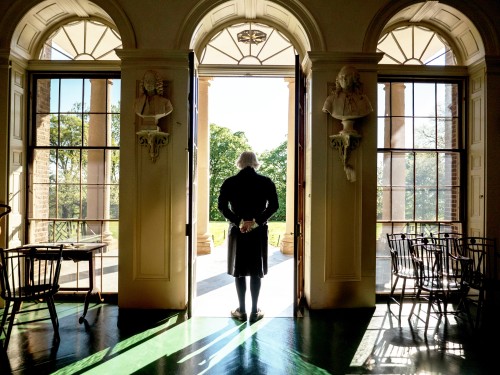Thomas Jefferson was a firm believer that "useful knowledge" could make life more efficient and convenient, and he used Monticello as a laboratory for that theory.
Monticello as Experiment: 'To Try All Things' presents the Monticello house and plantation as the testing ground for Jefferson's ideas on improving various aspects of life through the application of social, intellectual, economic, and technological advances. The exhibition places Monticello within the context of Jefferson's beliefs about individual life, society, and government and explain that while in the public sphere he sought to guide the direction of the new nation he helped create, Monticello was his private experiment.
'To Try All Things' features more than 200 original objects from Monticello's permanent collection, including archaeological artifacts, to illustrate Jefferson's love of science and technology; his lifelong quest for knowledge through reading, correspondence, record-keeping, and travel; his innovative (if not always successful) approaches to agriculture, labor, industry, and design at Monticello; and the many people—male and female, young and old, enslaved and free—who worked to implement his ideas.
There also are a humorous, 90-second animated video about Jefferson's record-keeping habits; an interactive timeline of significant events in his life and Monticello's history; and an interactive record of Jefferson's travels in Europe and America.
The exhibition space, the Jeffrey C. Walker Family Foundation Gallery, also features the superb bust of Jefferson sculpted by Jean-Antoine Houdon in Paris in 1789.
